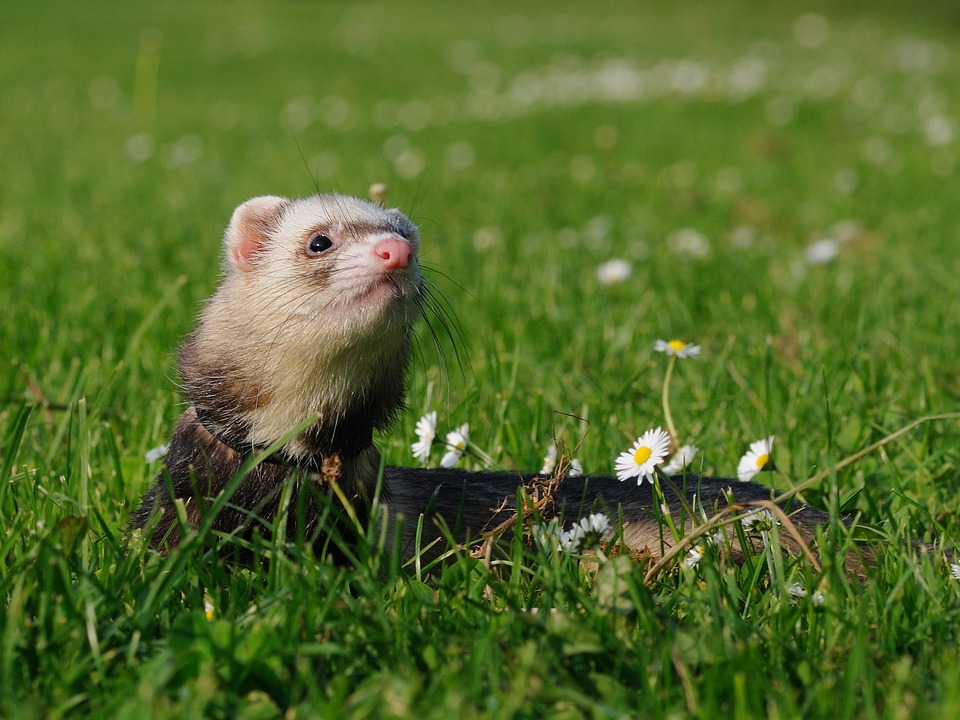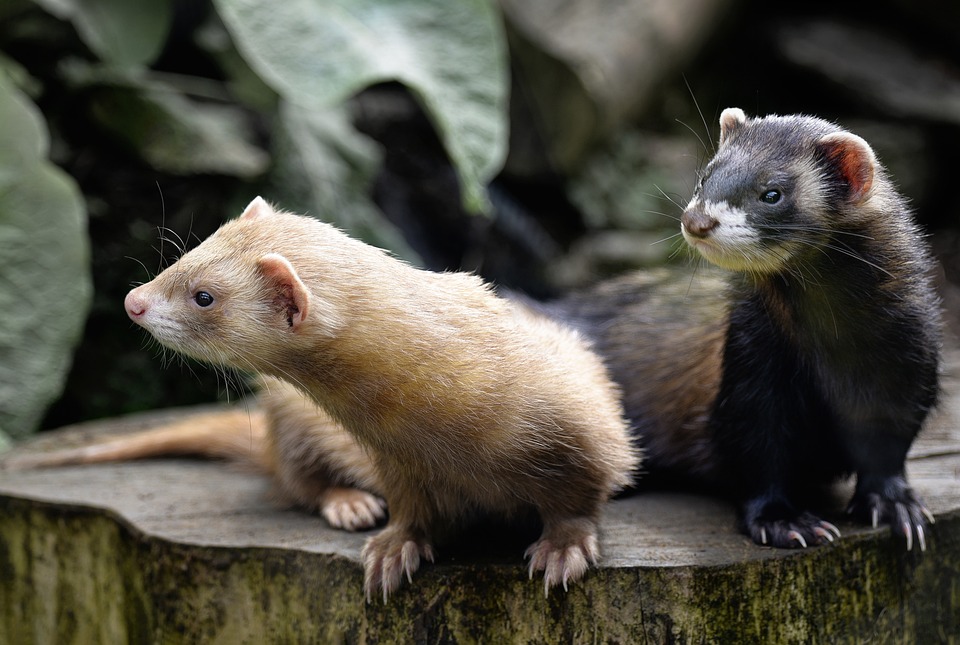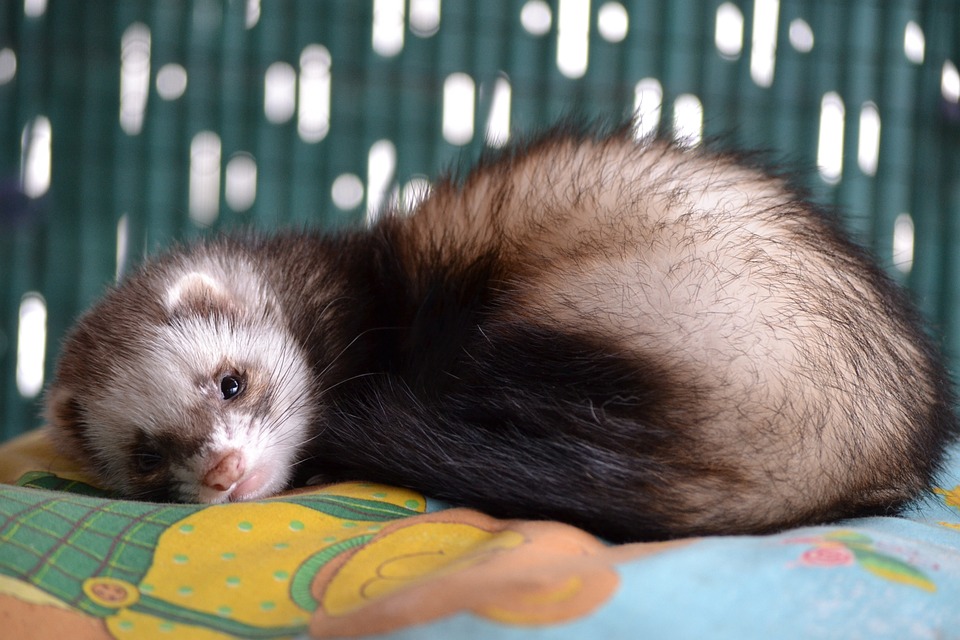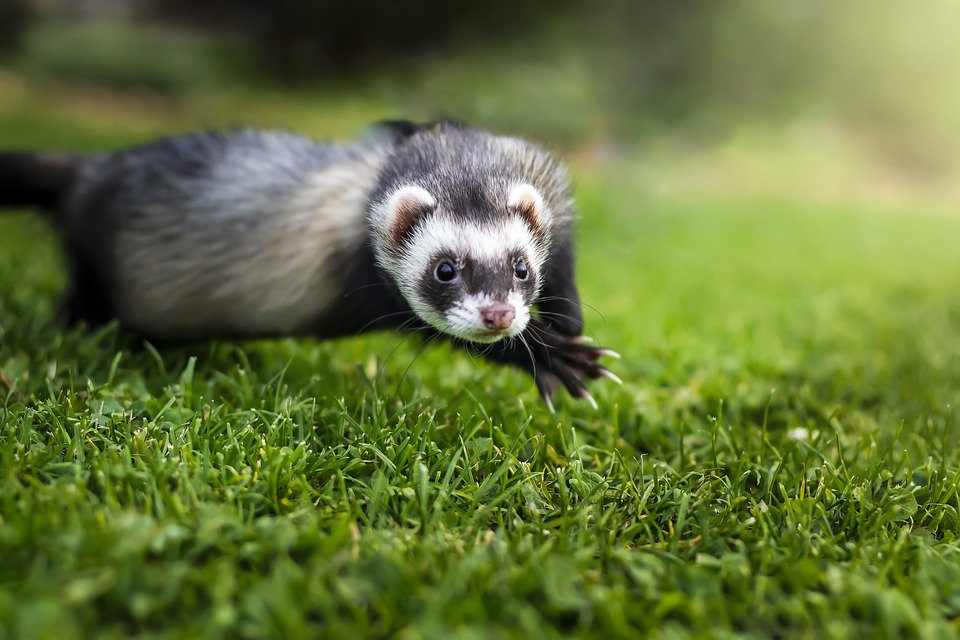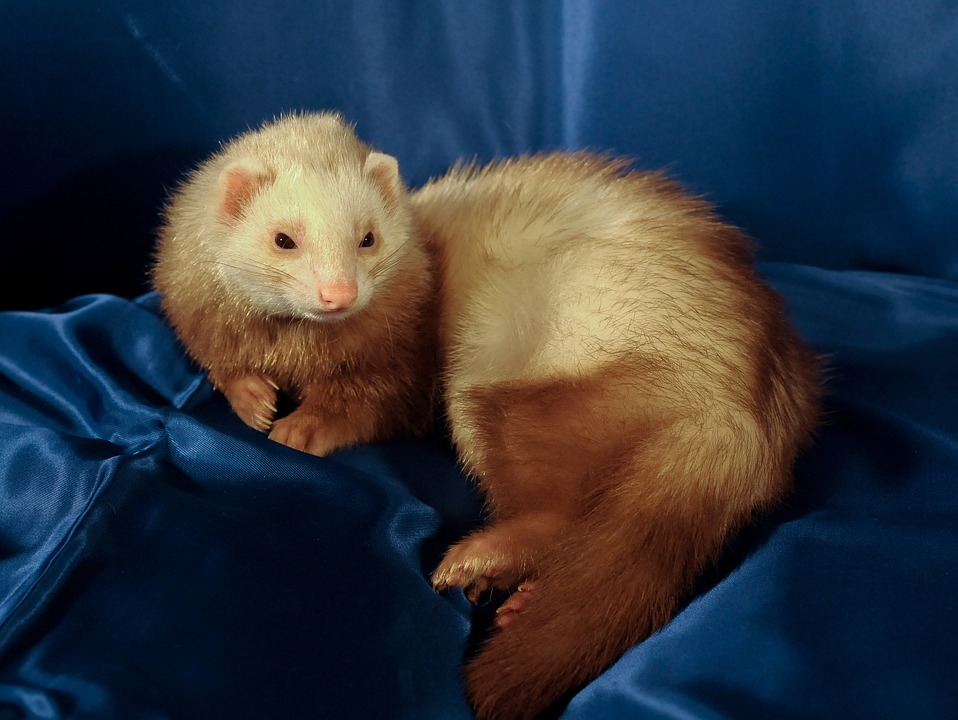The benefits of ferret ownership
Ferrets are intelligent, playful, and energetic creatures that make great pets. They have a lifespan of around 6-8 years and are relatively easy to care for, making them a popular choice for pet owners. Here are some of the benefits of ferret ownership:
- Ferrets are playful and energetic: Ferrets are active animals that love to play and explore. They are always up for a good game of chase or a tug-of-war with a toy. This makes them a great source of entertainment for their owners.
- Ferrets are smart. They are very smart animals that can be taught to do tricks and follow directions. They are also very curious and will often spend hours looking around and getting to know their environment.
- Ferrets are low-maintenance pets: Ferrets are relatively low-maintenance pets compared to other animals. They only need to be fed once or twice a day and need a small place to live, like a cage. They also know how to use the litter box, which makes them easy to take care of.
- Ferrets are good for people with allergies because they are hypoallergenic, which means they don’t make as many allergens as other pets. Because of this, they are a good choice for people who are allergic to dogs or cats. But it’s important to remember that no animal is completely allergy-free, and some people may still get sick when they’re around ferrets.
- Ferrets are social animals. They love to play with their owners and spend time with them. They are often very attached to their owners and will bond closely with them. Ferrets are also friendly with other ferrets and may even enjoy their company.
The history of ferrets
Ferrets have a long and varied history, dating back thousands of years. They have been used for a variety of purposes, including hunting, pest control, and entertainment. Here is a brief overview of the history of ferrets:
Ferrets have been domesticated for thousands of years: Ferrets are believed to have been domesticated around 2,500 years ago. They were originally used for hunting small prey, such as rabbits, and were also used to control pests, such as rats and mice.
Ferrets were used for fun: Throughout history, ferrets have been used for fun. Ferrets were taught to fight in small arenas in ancient Rome. In medieval Europe, ferrets were used to hunt rabbits in enclosed areas for a sport called “ferreting.”
In the 19th and early 20th centuries, ferrets were used in medical research to learn more about diseases like rabies and tuberculosis. They were also used to study the body’s immune system and how drugs affect it.
Ferrets became popular as pets. Ferrets became more and more popular as pets in the late 20th century. They are now kept as pets all over the world, and their playful and active personalities make them popular.
How to have a ferret friendly home
Ferrets are active, curious animals that need a lot of room to run around and play. If you have a ferret or are thinking about getting one, you should make sure that your ferret has a good place to live so that it is happy and healthy. Here are some tips for making your home a good place for ferrets:
- Ferrets need a cage to sleep and rest in, but they shouldn’t be kept in a cage all the time. Look for a cage that gives your ferret enough room to move around and play, both horizontally and vertically. The cage should also have plenty of airflow and be easy to clean.
- Make a play area for your ferret. They need to be able to play and explore outside of their cage. This could be a room or area of your home set aside for your dog, or it could be a large playpen. Make sure the play area is safe for your ferret and doesn’t have any small objects or plants that it could eat.
- Provide a lot of toys and things to do. Ferrets are very curious and need a lot of things to do to keep them happy. Give your ferret a variety of things to play with, like tubes, tunnels, balls, and stuffed animals. Your ferret can also play with toys you make yourself, like a cardboard box filled with shredded paper.
- Make sure your ferret has a place to hide. When they want to rest or sleep, ferrets like to have a cozy, private place to go. Give your ferret a place to hide in their cage and play area, like a small box or tunnel.
- Keep the area where your ferret lives clean. They are sensitive to smells and need a clean place to live. Clean your ferret’s cage often, and make sure to change its litter box often as well.
Behavior of ferrets
Play-biting: Ferrets are known for being playful, and play-biting is one way they show this. This is when they gently bite and nibble at their owner’s hands or feet. Biting is a natural way for ferrets to play, and they don’t do it to hurt anyone. But it’s important to teach your ferret that biting is not okay, because it can hurt or hurt others if it’s not stopped.
Digging: Ferrets have a natural urge to dig and burrow. They may try to do this in their litter box or in their soft bedding. This is normal, and you can encourage it by giving your ferret a digging box with soft things in it.
Chirping: When ferrets are happy or excited, they may make a chirping sound. This could mean they want to play or want your attention.
When ferrets are hungry or want something, they may whistle. This could be a way for them to tell their owner what they need.
Staring: When a ferret wants to say something, it may stare intently at its owner or at another ferret. This can mean they are interested, angry, or want to play.
Nutrition of ferrets
Feed a high-quality ferret food: Ferrets have a high metabolism and require a high-protein, high-fat diet to meet their energy needs. Look for a ferret food that is formulated specifically for ferrets and contains at least 35% protein and 20% fat. Avoid feeding your ferret a diet that is high in carbohydrates, as ferrets are unable to digest them efficiently.
Don’t feed your ferret dog or cat food. Some people may think it’s okay to feed their ferret dog or cat food, but these foods aren’t made for ferrets and don’t meet their nutritional needs.
Provide a variety of protein sources. Ferrets need a varied diet to meet their nutritional needs. You can give your ferret protein-rich foods like chicken, turkey, fish, and eggs. As a treat, you can also give your ferret a small amount of cooked meat.
Don’t give your ferret protein from plants: Ferrets have to eat meat because they are “obligate carnivores.” This means that they need to eat a lot of animal protein. You shouldn’t give your ferret plant-based proteins like beans or tofu because they can’t digest them well.
Always give ferrets fresh water. Ferrets need fresh water at all times. Make sure to clean and fill the water dish for your ferret every day.
Now, here is an overview of some common health issues that ferrets can experience:
- Respiratory infections: Ferrets are prone to respiratory infections, which can be caused by a variety of factors, including stress, poor diet, and poor living conditions. Symptoms of respiratory infections in ferrets may include sneezing, coughing, and difficulty breathing.
- Dental problems: Ferrets are prone to dental problems, such as tooth decay and gum disease, due to their high metabolism and the fact that they do not chew their food. Symptoms of dental problems in ferrets may include difficulty eating, bad breath, and swelling around the mouth.
- Adrenal gland disease: Adrenal gland disease is a common health issue in ferrets, and is caused by a hormonal imbalance. Symptoms of adrenal gland disease may include hair loss, weight loss, and changes in behavior.
- Insulinoma: Insulinoma is a type of cancer that affects the pancreas in ferrets. Symptoms of insulinoma may include lethargy, weakness, and changes in appetite.
